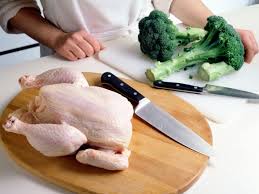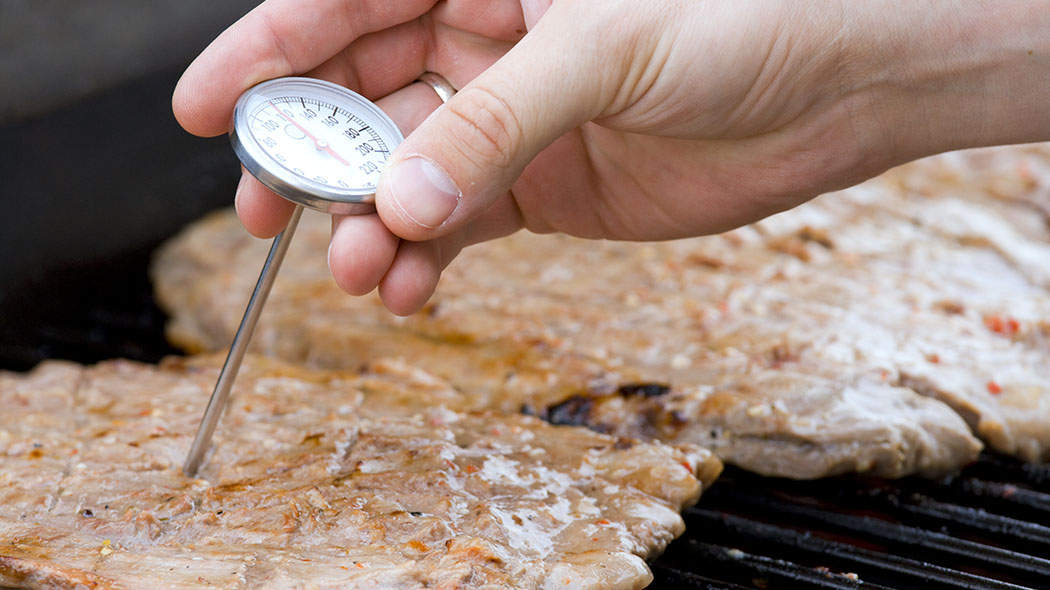|
The eatery around the corner of the road seemed exciting with its widespread varieties at nominal pricing and a great ambience. You plan for a weekend get-together and have a blast. Back home you prepare to go to sleep but something prevents you from falling asleep. There is a sense of unease, a vomiting sensation and nausea. Alas, hit by food poisoning indeed! Anyone can be affected by food poisoning which is an illness caused by foodborne pathogens contaminating the food. Certain groups of people such as infants, pregnant women, elderly population and those with chronic diseases such as kidney problems, diabetes and HIV are at an increased risk of contracting the illness which can have debilitating side effects such as grave illnesses or even death sometimes. Every person buying, cooking and eating food must ensure the following to reduce the risk of food poisoning. Buying The first step towards safeguarding from food poisoning starts with buying things at the supermarket. It is highly essential to check food labels for the ‘sell by’ date, check fruit juices to ensure that they have the ‘pasteurized’ label on them and buy milk, cheese and dairy products from the refrigerated section. If you are planning to get meat choose it only if each portion of meat is wrapped in separate packaging and once purchased, place the meat at the bottom of the shopping cart. The packet must be freezing cold and tightly packet to guarantee freshness. Purchase of any perishables must be done with the idea of directly going home after purchasing the perishable (as it must be refrigerated within two hours). Do’s & Don’ts
Cooking The kitchen towels, vessels, your hand and especially the wash area are thriving sites for food contamination. To ensure a safe cooking environment the first and foremost thing is to wash your hands before and after meal preparation for at least 20 seconds in soapy water. Wash the veggies thoroughly in running water and ensure that the kitchen counter including microwaves and refrigerators are clean before starting to cook. It is always recommended to use two cutting boards-one for cooking raw meat, fish and poultry and the other one for cooking veggies and other plant-based dishes and ready-to-eat food. Once everything is ready and you start cooking be sure that harmful bacteria are killed by cooking to a proper internal temperature. Use a food thermometer to check that meat and poultry are cooked to a safe temperature. Perplexed over cooking foods to different internal temperatures and doubtful of the correct ranges? Don’t worry as www.firsteatright.com is there for you to sort this issue in a jiffy!  Chop Off Germs, Use Two Different Cutting Boards Chop Off Germs, Use Two Different Cutting Boards Storing It doesn’t end with buying and cooking food but storing them is important as well. Any perishable food must be refrigerated within two hours of purchasing/cooking. The fridge thermometer must be used to ensure that the freezer as well as the refrigerator are chill enough to store food properly. Remember, just because the food is sitting inside the chiller it doesn’t mean that you can consume it anytime. The maximum shelf life of these foods is three days or so. Dining Out Dining out is fun but ensure safety by requesting an explanation on the food preparation method to ensure that it does not contain uncooked ingredients. If you are served with a slightly uncooked portion of food it is recommended that you send it back without any hesitation. Never eat any egg products that are half-cooked (such as salad dressings and desserts) and avoid raw shellfish, oysters, sushi and lightly steamed seafood such as snails and mussels. Despite following these safety measures if you doubt food poisoning following certain symptoms please get in touch with a physician immediately.
0 Comments
Leave a Reply. |
AVOID FRAUD. EAT SMART.+91 7846 800 800
AuthorDietitian & Nutritionist Dr. Nafeesa Imteyaz. Archives
November 2022
Categories
All
Dr. Nafeesa's Blog @blogspot |
- Home
- Written Testimonials
- Consult
- Clinics
- Blogs
-
Diet & Nutrition
- Diabetes Reversal
- IVF IUI not needed for PCOS PCOD Infertility
-
Medical Nutrition
>
-
Disease & Conditions
>
- Infertility | PCOS
- Diabetes Mellitus
- Cholesterol
- Hypothyroid
- Kidney Problems
- Hypertension
- Cardiovascular Diseases
- Liver Diseases
- Gastro intestinal disorder
- Cancer
- Metabolic Disorders
- Orthopedic Disorders
- Eating Disorders
- Dietary Recall
- Weight Record Filled By Clients
- Online Payment Transaction Details
- Online Clients Weight Check Form
- Our Program Package Service Charges
- Weight Record 2017 Clients
- Measurements sent by Clients
- Terms & Conditions Of Payment
- Thanks. Your Form is Submitted
- Video Testimonials
- Lifestyle & Wellness
- Lifestyle & Wellness Blog
- Allergy & Intolerance
- Weight Loss / Gain
- Weight Loss / Slimming Blog
-
Disease & Conditions
>
- Life Cycle Nutrition >
- Sports Nutrition >
- Integrity in Nutrition
- Knowledge Centre
© COPYRIGHT 2022. ALL RIGHTS RESERVED. FRST HEALTHCARE PVT LTD.
Dr. Nafeesa Imteyaz of First Eat Right clinic, is the Best Dietitian Nutritionist in Bangalore. Best Dietitian Nutritionist in Pune. Best Dietitian Nutritionist in Hyderabad. Best Dietitian Nutritionist in Chennai. Best Dietitian Nutritionist in Mumbai. Best Dietitian Nutritionist in Delhi. Best Dietitian Nutritionist in Kolkata.


